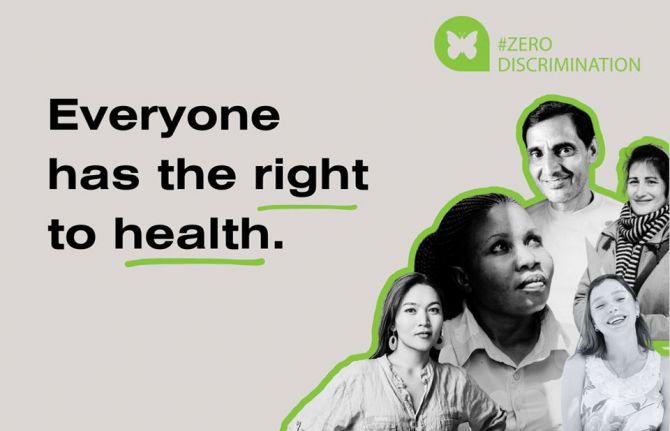

Press Statement
On the 10th anniversary of Zero Discrimination Day UNAIDS calls for the protection of human rights as a path to protecting health for all
27 February 2024 27 February 2024GENEVA, 27 February 2024—Zero Discrimination Day was established by UNAIDS ten years ago to advance equality and fairness for everyone regardless of gender, age, sexuality, ethnicity or HIV status. However, progress is in peril.
Attacks on the rights of women and girls, of LGBTQ+ people, and of other marginalized communities are on the rise. And when laws, policies, practices or norms enshrine punishment, discrimination or stigma for people because they are women, or are LGBTQ+, or are migrants, or sex workers, or use drugs, the results lead to failing public health as these communities are pushed away from vital health and social services.
“The attacks on rights are a threat to freedom and democracy and are harmful to health. Stigma and discrimination obstruct HIV prevention, testing, treatment and care, and hold back progress towards ending AIDS by 2030,” said Winnie Byanyima, Executive Director of UNAIDS. “It is only by protecting everyone’s rights that we can protect everyone’s health.”
There has been progress. At the start of the AIDS pandemic 40 years ago, two thirds of countries in the world criminalized LGBTQ+ people, today two-thirds of countries do not.
38 countries around the world have pledged to end HIV-related stigma and discrimination and today 50 million more girls are in school than in 2015.
To continue this progress UNAIDS urges support for women’s movements and movements for the rights of LGBTQ+ people, for racial justice, for economic justice, for climate justice, and for peace. As communities across the world stand up for rights, the United Nations is not only on their side but by their side.
On this Zero Discrimination Day (1 March), and across the whole month of March, events and activities will remind the world of this vital lesson and call to action: by protecting everyone’s rights, we can protect everyone’s health.
“Through upholding rights for all, we will be able to achieve the Sustainable Development Goals, and to secure a safer, fairer, kinder, and happier world – for everyone,” added Ms Byanyima.
UNAIDS
The Joint United Nations Programme on HIV/AIDS (UNAIDS) leads and inspires the world to achieve its shared vision of zero new HIV infections, zero discrimination and zero AIDS-related deaths. UNAIDS unites the efforts of 11 UN organizations—UNHCR, UNICEF, WFP, UNDP, UNFPA, UNODC, UN Women, ILO, UNESCO, WHO and the World Bank—and works closely with global and national partners towards ending the AIDS epidemic by 2030 as part of the Sustainable Development Goals. Learn more at unaids.org and connect with us on Facebook, Twitter, Instagram and YouTube.
